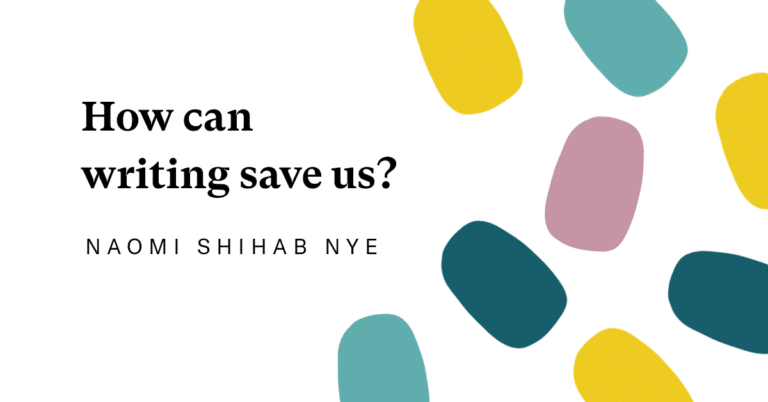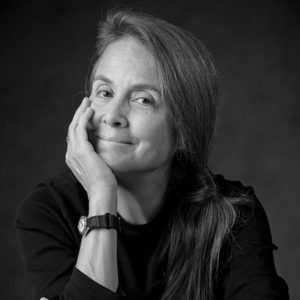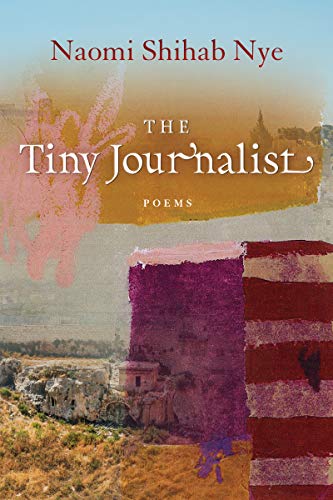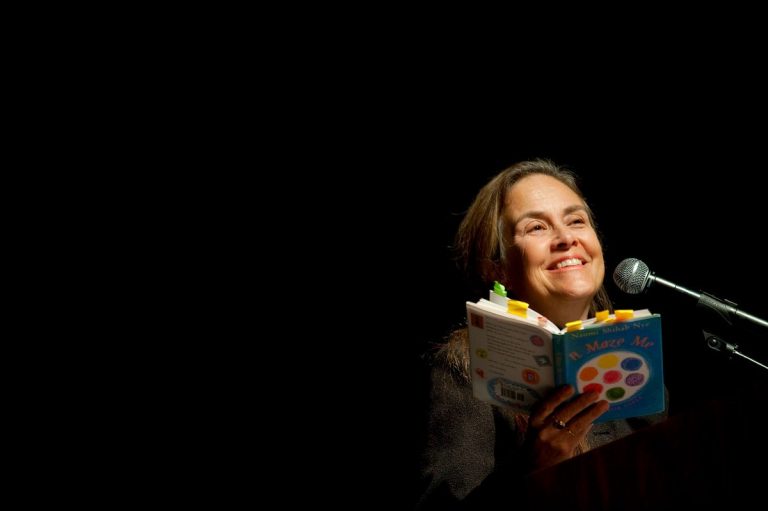Naomi Shihab Nye
The Everyday Gift of Writing
Naomi Shihab Nye says writing is “an act that helps you, preserves you, energizes you in the very doing of it.” She calls herself a “wandering poet,” and her words point to shining corners of beauty in the world we see every day.

© All Rights Reserved.
Guest

Naomi Shihab Nye is a professor of creative writing at Texas State University. From 2019-2021, Nye was the Young People's Poet Laureate through the Poetry Foundation. Her recent books include The Tiny Journalist (BOA Editions 2019), Voices in the Air: Poems for Listeners (Greenwillow Books 2022), Cast Away (HarperCollins 2020), and Everything Comes Next: Collected and New Poems (Greenwillow Books 2020). She received the 2019 Ivan Sandrof Lifetime Achievement Award from the National Book Critics Circle.
Transcript
[music: “Sun Will Set” by Zoë Keating]
Krista Tippett, host: Naomi Shihab Nye’s words point to shining corners of beauty in the world we see every day. She calls herself a “wandering poet.” She reveals language as a gift.
This is Becoming Wise. I’m Krista Tippett.
Ms. Tippett: I know your poem “Kindness” has been really important for many people. It’s interesting that — would you tell it? — because the backstory to that poem doesn’t sound like the circumstances under which you would write a poem about kindness. I’d love for you to just tell that story, and then maybe read it also.
Ms. Shihab Nye: Well, I really feel, amongst all my poems, that this was a poem that was given to me. I was simply the secretary for the poem. I wrote it down, but I honestly felt as if it were a female voice speaking in the air across a plaza in Popayán, Colombia. My husband and I were on our honeymoon. We had just gotten married one week before here in Texas.
We had this plan to travel in South America for three months. At the end of our first week, we were robbed of everything. Someone else who was on the bus with us was killed, and he’s the Indian in the poem. It was quite a shake-up of an experience. And what do you do now? We didn’t have passports. We didn’t have money. We didn’t have anything. And a man came up to us on the street and was simply kind and just looked at us, I guess could see our disarray in our faces and just asked us in Spanish, “What happened to you?” We tried to tell him. He listened to us, and he looked so sad. And he said, “I’m very sorry. I’m very, very sorry that happened,” in Spanish, and he went on.
And then we went to this little plaza, and I sat down, and all I had was the notebook in my back pocket and pencil. My husband was going to hitchhike off to Cali, a larger city, to see about getting traveler’s checks reinstated. Remember those archaic things?
Ms. Tippett: [laughs] Yes, I do. Vaguely, yeah.
Ms. Shihab Nye: Traveler’s checks. I haven’t seen one in years. And as I sat there alone, in a bit of a panic, night coming on, trying to figure out what I was going to do next, this voice came across the plaza and spoke this poem to me — spoke it. And I wrote it down.
Ms. Tippett: [laughs] Wow.
Ms. Shihab Nye: I was just the scribe. So did you want me to read it?
Ms. Tippett: Yes, I’d love for you to read it.
Ms. Shihab Nye:
“Before you know what kindness really is
you must lose things,
feel the future dissolve in a moment
like salt in a weakened broth.
What you held in your hand,
what you counted and carefully saved,
all this must go so you know
how desolate the landscape can be
between the regions of kindness.
How you ride and ride
thinking the bus will never stop,
the passengers eating maize and chicken
will stare out the window forever.
Before you learn the tender gravity of kindness
you must travel where the Indian in a white poncho
lies dead by the side of the road.
You must see how this could be you,
how he too was someone
who journeyed through the night with plans
and the simple breath that kept him alive.
Before you know kindness as the deepest thing inside,
you must know sorrow as the other deepest thing.
You must wake up with sorrow.
You must speak to it till your voice
catches the thread of all sorrows
and you see the size of the cloth.
Then it is only kindness that makes sense anymore,
only kindness that ties your shoes
and sends you out into the day to gaze at bread,
only kindness that raises its head
from the crowd of the world to say
It is I you have been looking for,
and then goes with you everywhere
like a shadow or a friend.”
One thing I’ve tried to say to groups over the years, groups of all ages, is that writing things down, whatever you’re writing down, even if you’re writing something sad or hard, usually you feel better after you do it. Somehow, you’re given a sense of, “OK, this mood, this sorrow I’m feeling, this trouble I’m in, I’ve given it shape. It’s got a shape on the page now. So I can stand back, I can look at it, I can think about it a little differently. What do I do now?”
Very rarely do you hear anyone say they write things down and feel worse. They always say, “I wrote things down. This isn’t quite finished. I need to work on it.” But they agree that it helped them sort of see their experience, see what they were living. That’s definitely a gift of writing that is above and beyond any sort of vocational — how much somebody publishes. It’s an act that helps you, preserves you, energizes you in the very doing of it.
[music: “Sun Will Set” by Zoë Keating]
Ms. Tippett: Naomi Shihab Nye is a professor of poetry at Texas State University. Her books include 19 Varieties of Gazelle, Transfer, and Voices in the Air: Poems for Listeners.
Becoming Wise is produced by Marie Sambilay, Lily Percy, and Chris Heagle at On Being Studios, which is located on Dakota Land. And our theme music is provided and composed by Zoë Keating.
Books & Music
Recommended Reading
The On Being Project is an affiliate partner of Bookshop.org and Amazon.com. Any earnings we receive through these affiliate partnerships go into directly supporting The On Being Project.












Reflections